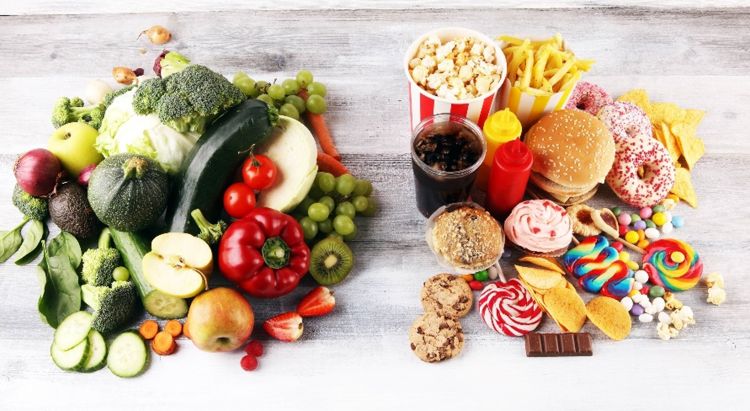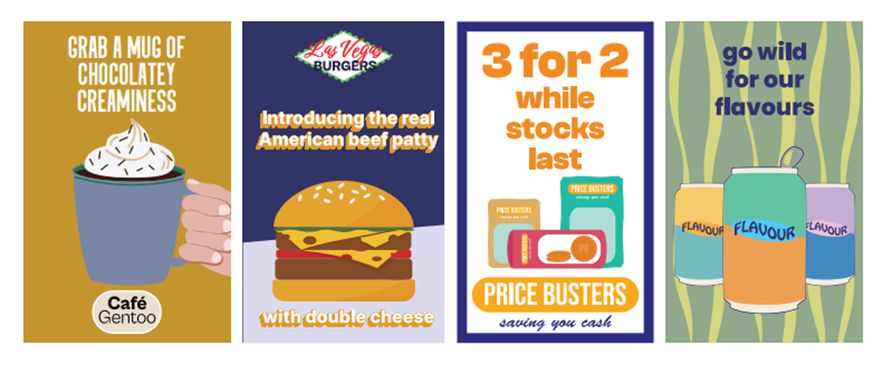About the healthier advertising policy
As part of our commitment to improve the health of children living in Tower Hamlets, we have introduced a new healthier advertising policy. This page explains the policy, its key features and how it will positively impact our community.
Download the healthier advertising policy
The healthier advertising policy
The healthier advertising policy promotes healthier food options over foods that are high in fat, salt and sugar. It does this by restricting advertising of food and non-alcoholic drinks high in fat, salt and sugar on council-owned advertising spaces and through council advertising contracts.
Examples of high fat, salt and sugar products include cookies, crisps and sweets.

Why the policy is important
Our borough has high levels of childhood unhealthy weight levels, putting children at risk of a range of health issues. Over 1 in 5 children in Reception have excess weight. This more than doubles by Year 6, where over 2 in 5 children have excess weight. Dental decay is also an issue, and children from more deprived backgrounds are more affected than children from less deprived backgrounds. We are working hard to change this.
A key part of growing up healthily is eating a nutritious diet. Advertisements promoting unhealthy food and drink influence what children eat and drink, leading to poorer health.
Unhealthy food advertising also widens health inequalities because children from disadvantaged areas are more likely to be exposed to unhealthy food adverts compared with children from wealthier areas.
The policy aims to reduce the harmful impacts of unhealthy food and drink advertising on children to create a healthier environment for everyone.
Key features of the policy
Under the new policy, advertisers who advertise through the council or on council-owned land are required to adhere to specific criteria.
These criteria are designed to ensure advertisements promote healthier products and avoid the promotion of high fat, salt, and/or sugar (HFSS) products. Advertisers will be expected to use the Nutrient Profiling Model (NPM), a scientifically validated tool, to determine if their products fall under the HFSS category.
Read the guidance on identifying products considered HFSS under the Nutrient Profiling Model (NPM).
The council's Public Health team can help Small and Medium Sized Enterprises (SMEs) learn how to use the NPM. SMEs are organisations with fewer than 250 employees and an annual turnover of less than €50 million.
Examples of adverts that are allowed and not allowed under the policy
Here are some examples of how adverts were changed to make them compliant with the healthier advertising policy.

First advert: Example of adverts before

Second advert: Example of adverts after implementation of the Healthier Food Advertising policy, based on real-life examples
Source: Bernhardt, Fran. Sustain. Healthier Food Advertising Policy Toolkit: How local authorities can restrict junk food advertising. February 2022
- In the first advertisement, they made it compliant by switching the high-fat, salt and sugar (HFSS) hot chocolate to a non-HFSS coffee.
- In the second advertisement, they replaced a burger with extra cheese with a version that had less HFSS.
- The third advertisement became compliant by swapping confectionery with fruit.
- In the final advertisement, they replaced their HFSS drinks with sugar-free versions.
Download the healthier advertising policy
Implementing the policy
We are committed to making sure the policy is put into action effectively. The council will carefully review advertising content to ensure it adheres to the policy. If you have any questions or need help following the policy, you can contact us at healthier-advertising-policy@towerhamlets.gov.uk.